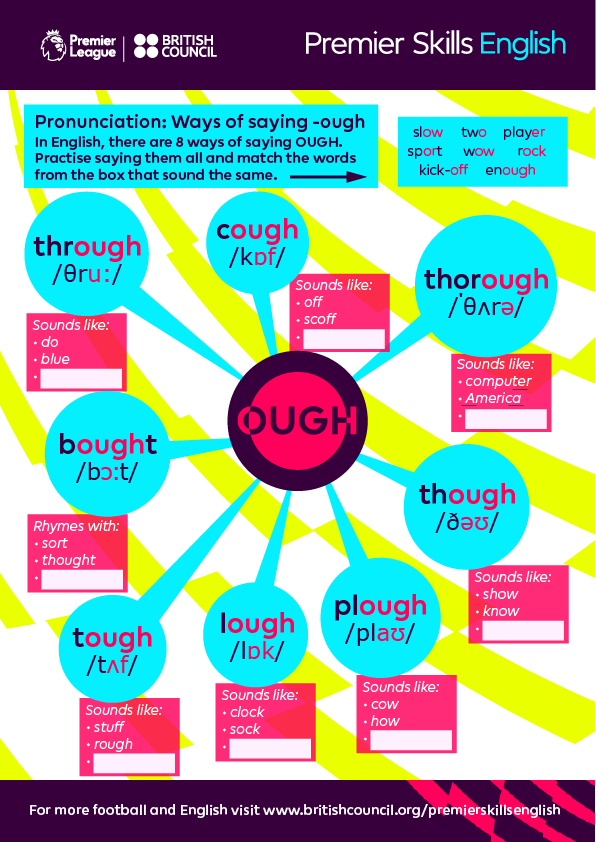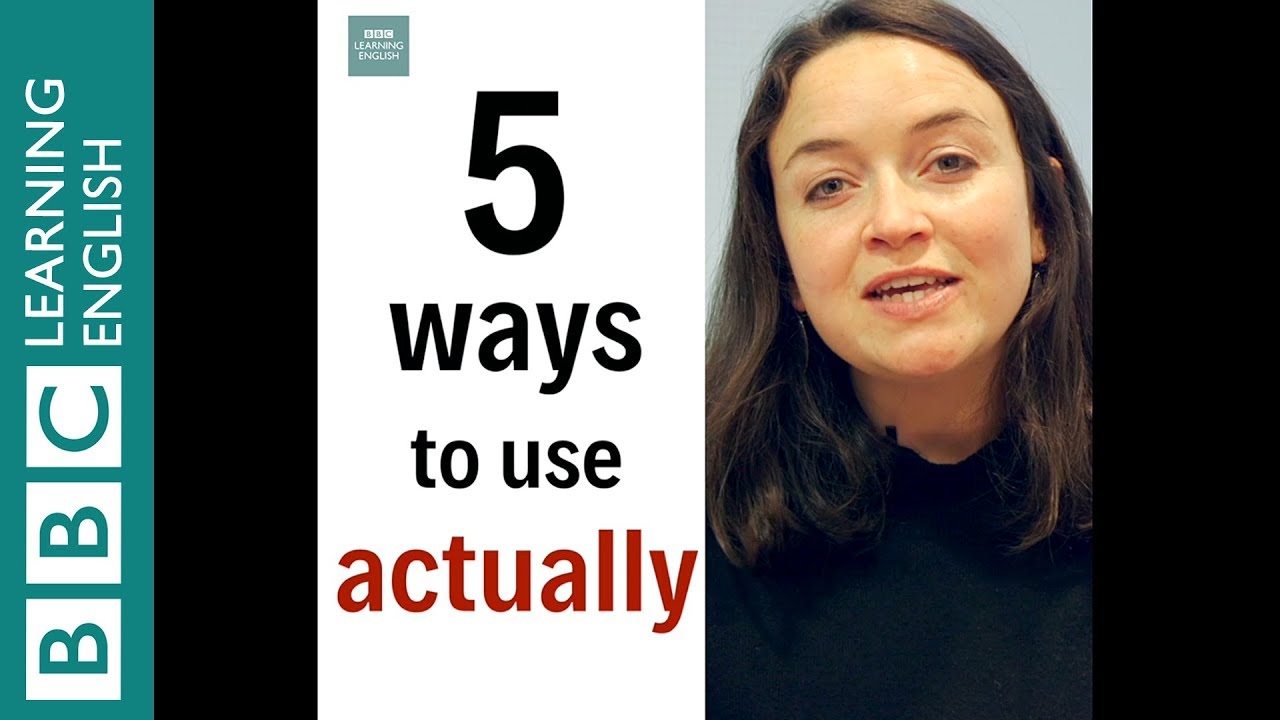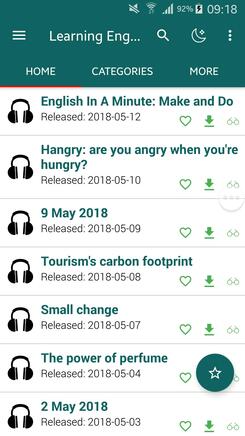|
Best view with full screen.
Si consiglia la visione a schermo intero.
For those of you who are considering studying English, here's an interactive presentation I created that explains the first basic elements of the language. Click on the arrows to scroll left and right. Click on the headings in the "difficult" part to get more information.
Per voi che state considerando di studiare l'inglese, ecco una presentazione interattiva che ho creato per spiegare i primi elementi base della lingua. Clicca sulle frecce per scorrere a sinistra e a destra. Clicca sulle intestazioni nella parte "difficile" per avere maggiorni informazioni.
1 Comment
Sotto trovate la traduzione dell'articolo Without a doubt, compared to Latin languages, English grammar is much easier. Adjectives and nouns have no gender, there is no polite form and apart from a few 'irregular' verbs, verb endings are easy, and hardly change. The difficulties start with pronunciation. English is not a pure language and many words come from different sources and are not pronounced as they are spelled. This is why much emphasis must be put on listening and speaking skills, right from the start. A great example of how English pronunciation can be challenging is superbly represented in this episode from the famous television series from the 1950s "I love Lucy". Lucy and her husband Riccardo are expecting a baby. Riccardo is Cuban and not a native English speaker but he claims that he would have no problem whatsoever to read bedtime stories in English to his newborn. Lucy puts him to the test with the different pronunciations of "ough". Did you know that there are 8 different pronunciations of "OUGH"? Below is a handy chart made by the British Council to practise the different ways of saying "OUGH". LA PRONUNCIA E' TUTTO!
Senza dubbio, paragonata alle lingue latine, la grammatica inglese è molto più facile. Gli aggettivi e i sostantivi non hanno genere, non esiste la forma cortese (“Lei”) e, con l’eccezione di qualche verbo irregolare, le desinenze verbali sono facili e cambiano poche volte. Le difficoltà dell’inglese iniziano con la pronuncia. L’inglese non è una lingua pura e molte parole provengono da fonti diverse e non si pronunciano come sono scritte. Ecco perchè bisogna dare molta enfasi allo sviluppo delle competenze di ascolto (“listening”) e di parlato (“speaking”), fin dall’inizio dello studio della lingua. Un esempio eccezionale di come la pronuncia in inglese può essere impegnativa è rappresentata in maniera esemplare in questo episodio della serie televisiva degli anni 50 "I love Lucy". Lucy e suo marito aspettano un bambino. Riccardo è cubano e non è di madre lingua inglese ma sostiene che non avrebbe nessun problema a leggere storie della buonanotte in inglese al futuro neonato. Lucy lo mette alla prova con le diverse pronunce di "OUGH". Lo sapevate che esistono ben 8 pronunce diverse di "OUGH"? Sotto trovate una tabella pratica della British Council per esercitare i diversi modi di pronunciare "OUGH". Surprisingly, English and Italian share a lot of similarities in vocabulary. But not all words that are similar mean the same thing. Over the course of history, the English language became latinized and it's been estimated that around 40% of its vocabulary is rooted in Latin. This explains why sentence structure in English is more similar to the Latin languages than to Germanic languages, of which English is part. Consequently, Italian and English share words with Latin roots and a group of these words is called "False Friends". A "False Friend" is a word which is pronounced and spelled in a similar way to a word in another language but with a totally different meaning. False Friends can be difficult and confusing and the only way to learn them is to memorize them. Some common English "False Friends" that are confusing for students are: - actually (adv.) - to pretend (v.) - annoying (adj.) - factory (n.) - currently (adv.) - sensible (adj.) - eventually (adv.) - to frequent (v.) - morbid (adj.) - library (n.) - educated (adj.) - preservative (n.) - fabric (n.) - gently (adv.) I find that the number one false friend that is used the most erroneously is "actually". At the top of this text is a BBC Learning video that explains the uses of "actually". Happy studying everyone! Traduzione del testo
Sorprendentemente, l'inglese e l'italiano condividono molte somiglianze nel lessico. Ma non tutte le parole simili significano la stessa cosa. Nel corso della storia, la lingua inglese è diventata latinizzata ed è stato stimato che circa il 40% del suo vocabolario ha radici nel latino. Questo spiega perché la struttura delle frasi in inglese è più simile alle lingue latine che alle lingue germaniche, di cui l'inglese fa parte. Di conseguenza, l'italiano e l'inglese condividono parole con radici latine e un gruppo di queste parole si chiama "False Friends". Un "False Friend" è una parola pronunciata e scritta in modo simile a una parola in un'altra lingua, ma con un significato totalmente diverso. I "false Friends" possono essere difficili e creare confusione e l'unico modo per impararli è memorizzarli. Alcuni "falsi amici" inglesi comuni che confondono gli studenti sono: - actually (adv.) - to pretend (v.) - annoying (adj.) - factory (n.) - currently (adv.) - sensible (adj.) - eventually (adv.) - to frequent (v.) - morbid (adj.) - library (n.) - educated (adj.) - preservative (n.) - fabric (n.) - gently (adv.) Trovo che il falso amico numero uno usato più erroneamente sia "actually". Nella parte superiore di questo testo c'è un video di BBC Learning che spiega l'uso di "actually". Happy studying everyone! It is estimated that more than half of the letters in the English alphabet are silent in some words. Unfortunately, there are no simple rules to explain or understand the meccanism of silent letters. To fully understand its complexity, here are a few interesting facts: - Many English words have roots in other languages, like French, Latin, Greek and German. - The spelling of some words are literally made up. - Written English has existed for hundreds of years and countless changes have been made in this time. - Some pronunciations have been copied from other languages. - Some letters, like the 'e', change the way you pronounce the other letters, e.g. 'hat' and 'hate'. Silent letters are hard for English students to learn and for English teachers to teach but, with steady speaking and listening practise, English pronunciation can be mastered! Below are two excellent videos from ELC 88 which explain, letter by letter, the silent letters. Definitely a must for learners who really want to learn silent letters! Testo in italiano
Si stima che più della metà delle lettere dell'alfabeto inglese sono mute in alcune parole. Sfortunatamente, non esistono regole semplici per spiegare o comprendere il meccanismo delle lettere mute. Per comprenderne appieno la complessità, ecco alcuni fatti interessanti: - Molte parole inglesi hanno radici in altre lingue, come francese, latino, greco e tedesco. - L'ortografia di alcune parole è letteralmente inventata. - L'inglese scritto esiste da centinaia di anni e in questo periodo sono state apportate innumerevoli modifiche. - Alcune pronunce sono state copiate da altre lingue. - Alcune lettere, come la "e", cambiano il modo in cui pronunci le altre lettere, ad esempio, "hat" e "hate". Le lettere silenziose sono difficili da imparare per gli studenti di inglese e da insegnare per gli insegnanti di inglese ma, con una pratica costante di ascolto e conversazione, è possibile padroneggiare la pronuncia inglese! Di seguito sono riportati due eccellenti video di ELC 88 che spiegano, lettera per lettera, le lettere silenziose. Sicuramente un must per gli studenti che vogliono davvero imparare le lettere silenziose! Sotto trovate la traduzione dell'articolo in italiano. If you like reading, why not you try reading in English with graded books! A graded reader is one of a series of books ranked by grade level, reader level or another level of difficulty. Graded readers are used by learners at specific stages of their foreign language studies. Learners practice reading skills and gain reading and speaking fluency and new vocabulary. One important tip: read out loud! It's a great exercise for pronunciation and word linking! Furthermore, it is fundamental to get used to hearing your own voice in English. There is a wide assortment of topics you can choose from. You can find graded readers in the best bookshops and on Amazon. Graded reading in English is an excellent support during the learning process. Plus, reading expands your mind and enriches your soul. Se ti piace leggere, perchè non provi a leggere in inglese con le letture graduate!
Il "graded reader" è uno di una serie di libri classificati per livello academico, livello del lettore o un altro livello di difficoltà. "Graded readers" vengono utilizzati dagli studenti a fasi specifici del loro apprendimento della lingua straniera. Gli studenti esercitano le loro competenze di lettura ed acquisiscono nuovi vocaboli e facilità e fluidità di lettura e parlato ("reading & speaking fluency"). Un consiglio importante: leggi a voce alta! E' un esercizio eccellente per la pronuncia e la legatura lessicale. Inoltre, è fondamentale abituarsi a sentire la propria voce in inglese. Esiste un vasto assortimento di argomenti da cui scegliere. Puoi trovare i "graded readers" nelle migliori librerie e su Amazon. La lettura graduata in inglese è un sostegno eccellente durante il processo di apprendimento. Inoltre, leggere fa crescere la mente ed arricchisce l'anima. Sotto trovate la traduzione dell'articolo in italiano Getting a Cambridge English: Preliminary certificate opens the door to opportunities for work, study and travel. Cambridge English: Preliminary, also known as Preliminary English Test (PET), is an internationally accepted certification acknowledged by employers, educational institutions and government departments around the world as proof of ability to use English at an intermediate level. Cambridge English: Preliminary is at CEFR Level B1. At this level users can understand factual information and show awareness of opinions, attitudes and mood in both spoken and written English. It can be used as proof of your ability to use English to communicate with native speakers for everyday purposes. Preparing for Cambridge English: Preliminary will give you the practical English skills to deal with most situations in public, while travelling and in the work environment. Reaching level B1 shows that you are developing your language abilities. Passing the PET exam shows that you have mastered the basics of English and now have practical language skills for everyday use. Cambridge English: Preliminary is the logical step before preparing for the Cambridge English: First (FCE). Cambridge English: Preliminary will improve your work, study and travel prospects and you will gain a valuable qualification that is accepted worldwide. Start preparing now for your Cambridge English: Preliminary! Extracts from Cambridge Assessment, Cambridge English: Preliminary guide - Copyright © 2017 UCLES Ottenere un certificato Cambridge English: Preliminary apre le porte ad opportunità di lavoro, studio e viaggio.
Cambridge English: Preliminary, conosciuto anche come Preliminary English Test (PET), è un certificato accettato a livello internazionale da datori di lavoro, istituti educativi e dipartimenti governativi in tutto il mondo come prova dell'abilità di usare l'inglese ad un livello intermedio. Cambridge English: Preliminary si trova al livello CEFR B1. A questo livello, gli utenti possono comprendere informazioni di fatto e mostrare la consapevolezza di opinioni, atteggiamenti e stati d'animo, sia in inglese parlato che scritto. Può essere utilizzato come prova della tua abilità di usare l'inglese per comunicare con madrelingua nella quotidianità. Preparare per il Cambridge English: Preliminary ti darà le competenze pratiche in inglese per affrontare la maggior parte delle situazioni in pubblico, in viaggio e nell'ambiente di lavoro. Raggiungere il livello B1 dimostra che stai sviluppando le tue abilità linguistiche. Passare l'esame PET dimostra che sei in possesso delle basi dell'inglese e ora hai le competenze linguistiche pratiche per uso quotidiano. Cambridge English: Preliminary è il passaggio logico prima di preparare il Cambridge English: First (FCE). Cambrige English: Preliminary migliorerà le tue prospettive di lavoro, studio e viaggio e otterrai una qualifica preziosa accettata in tutto il mondo. Comincia ora a prepararti per il Cambridge English: Preliminary!  English in a minute is a series created by BBC Learning English that will teach you something about English grammar or vocabulary in just a minute! Really learn the difference between 'do' and 'make', 'been' and 'gone', 'must' and 'have to'; learn the 5 ways to use 'get'; the 3 uses of 'the' and much more. English in a minute consists of a fun 1-minute video with a clear, concise explanation of a grammar or vocabulary concept done by BBC's Learning English staff. You can also download the pdf transcript of the presentation. There are dozens of English in a Minute videos available. You can watch them on the BBC Learning English website or on their app. You'll be surprised how much you can learn in a minute! Translation in Italian
'English in a Minute' è una serie creata da BBC Learning English che ti insegnerà qualcosa sulla grammatica o il lessico inglese in un minuto! Impara davvero la differenza tra "do" e "make", "been" e "gone", "must" e "have"; impara i 5 modi per usare 'get'; i 3 usi di "the" e molto altro. 'English in a Minute' consiste in un divertente video di 1 minuto con una spiegazione chiara e concisa di un concetto di grammatica o lessico, realizzato dallo staff della BBC English Learning. Puoi anche scaricare la trascrizione in pdf della presentazione. Ci sono decine di video 'English in a Minute' disponibili. Puoi guardarli sul sito web BBC Learning English o sulla loro app. Sarai sorpreso da quanto puoi imparare in un minuto!
Sotto trovate la traduzione dell'articolo in italiano
Now that it's almost summer and you're going on vacation, why not download some apps on your phone to practice English whenever you have some free time!!
Many people are familiar with whatsapp, the cross-platform mobile messaging app. But do you know what inspired this name? "App" stands for "application and the name WhatsApp is a clever pun (a play on words) on the phrase "what's up", which is an informal greeting in American English that means "what's going on?" or "how are things?". What's up is that we are living in the mobile age so why not take advantage of it and download some great apps for your English practice! There are so many to choose from, for both younger and older learners. Here are 10 apps that are currently considered the most popular. Most of them have a free version you can start with. Then, if you like the app and want to continue, you can upgrade! So check them out (click on each app to read its information) and decide ........ what's your app?
Ora che è quasi estate e vai in vancanza, perchè non scarichi qualche app sul tuo telefono per esercitare il tuo inglese quando hai un pò di tempo!
Molte persone conoscono Whatsapp, l'applicazione di messaggistica multi-piattaforma. Ma non tutti sanno cosa abbia ispirato il nome. "App" sta per applicazione e il nome Whatsapp è un ingegnoso gioco di parole ("pun") sulla frase "what's up", che è un saluto informale in inglese americano che significa "cosa succede?", o "come vanno le cose?" Cosa succede è che stiamo vivendo nell'era del cellulare e quindi perchè non lo sfruttiamo e scarichiamo degli apps eccezionali per la tua pratica in inglese! Ce ne sono tantissimi da cui scegliere, sia per studenti più giovani che meno giovani. Qui sotto presento 10 apps considerati attualmente tra i migliori. La maggior parte di essi hanno una versione gratis con cui puoi iniziare. Poi, se ti piace l'app e desideri continuare, puoi fare l'aggiornamento a pagamento ("upgrade")! Quindi, provali (clicca su ciascun app per leggere le sue caratteristiche) e decidi .......... what's your app! Sotto trovate la traduzione dell'articolo in italiano.  For many students around the world who are studying English, nothing is more motivating for them than doing a Cambridge exam. Learning English can take many years and I often encounter students who need an extra motivation to continue their studies. Taking a Cambridge exam is an excellent way to revive your motivation and set a new objective in your language learning. Plus, a Cambridge certification will bring many advantages to your professional and personal life. A Cambridge certificate is proof of your language level and improvement and it will boost your self-esteem. Cambridge exams are internationally recognized by universities and in the job market. Having a Cambridge qualification on your CV makes you stand out from the crowd of candidates that can’t prove their English level. It is best to divide your English language learning into stages and, at the end of each stage, when you have improved your linguistic level, you can take a Cambridge exam to verify your progress. There are exams for every level of English (A2 – C2) and specific exams for young learners, for schools and for adults. The exams are specifically designed to test your English in real life situations and assess all four language skills (listening, speaking, reading and writing). There are authorized exam centres in 130 countries all over the world. Cambridge exams can be taken with no preparation but I strongly recommend taking a specific preparation course in order to learn the exam techniques and strategies, including time management. There is no age limit to take any exam and (drum roll!) the result is valid FOREVER!! Cambridge qualifications don’t expire! Don’t wait further! Set your new goal. Take the challenge and start preparing for your Cambridge certificate today! MOTIVA IL TUO INGLESE! FAI UN ESAME CAMBRIDGE! Per molti studenti nel mondo che studiano l’inglese, non c’è cosa più motivante che fare un esame Cambridge. Imparare l’inglese può richiedere anni e spesso incontro studenti che hanno bisogno di una motivazione extra per continuare i loro studi. Fare un esame Cambridge è un modo eccellente per rinnovare la tua motivazione e fissare un nuovo obbiettivo nel tuo apprendimento linguistico. Inoltre, una certificazione Cambridge porterà molti vantaggi alla tua vita professionale e personale. Una qualifica Cambridge è prova del tuo livello linguistico e del tuo miglioramento ed aumenterà la tua auto-stima. Gli esami Cambridge sono riconosciuti a livello internazionale da università e nel mondo del lavoro. Avere una certificazione Cambridge sul tuo curriculum ti farà distinguere dalla massa di candidati che non possono dare prova del loro livello d’inglese. E’ consigliabile dividere il tuo processo di apprendimento d’inglese in periodi e, alla fine di ogni periodo, quando hai effettivamente migliorato il tuo livello linguistico, puoi fare un esame Cambridge per verificare il tuo progesso. Esistono esami per ogni livello (A2-C2) ed esami specifici per giovani, per le scuole e per adulti. Gli esami sono pianificati appositamente per accertare il tuo livello d’inglese in situazioni reali di vita e verificano le quattro competenze linguistiche (ascolto, parlato, lettura, scrittura). Ci sono centri d’esame autorizzati in 130 paesi in tutto il mondo. Gli esami Cambridge possono essere fatti senza preparazione ma consiglio fortemente di fare un corso specifico di preparazione per imparare le tecniche e strategie d’esame, tra cui la gestione del tempo. Non vi sono limiti di età per alcun esame e (rullo di tamburo!) il risultato rimane valido PER SEMPRE!! Le certificazioni Cambridge non scadono! Non aspettare oltre! Fissa il tuo nuovo obbiettivo. Accetta la sfida e comincia a preparare la tua certificazione Cambridge oggi stesso! Sotto trovate la traduzione dell'articolo in italiano. Before talking about the advantages of online English lessons, it is important to remember that “face-to-face” lessons (one-to-one, two-to-one, group lessons) will continue to exist, are always very effective and will never go out of style. But now that I have been teaching online language lessons for the past 2 years, I feel compelled to explain this online academic world to you, potential English students, so you are aware of this extra and very valid resource for taking lessons. In the United States, where I first started my online teaching experience, online courses have been thriving for years. There are endless platforms where you can find all kinds of teachers for academic subjects, music, sports, hobbies and much more. Nowadays, with an experienced and tech-savvy teacher and a fast Internet connection, you can basically learn anything online. It has become an extremely successful business and is constantly growing. So, what are the advantages of online English lessons for students? First, let’s talk about the obvious comforts that come with it. You have no more travel time to worry about! No more of your time is wasted in commuting or looking for parking! No more frustration because the car won’t start or you're stuck in a traffic jam or bad weather! Consequently, you won’t have any more extra expenses such as gas, parking or bus tickets. You can take your lesson in the comfort of your own home (or someone else’s), office or even a public space, provided it is not noisy. You can exploit a free hour that you have between a tight schedule to take your lesson. You can even take your lesson while traveling! How great is all this? Next, you have the possibility to choose any teacher that is present online, in any part of the world! You don’t have to limit your choice to teachers in your local neighborhood or city. So your reach when searching for the right teacher is extremely wide and you will be able to choose from a generous range of professionals who have good student reviews and much experience. The only two limits to keep in mind are the time zones and the rates. Regarding the latter, the more successful and requested teachers can be expensive but no worries! There are many online teachers out there with affordable rates. Furthermore, because there is no travel time, for you or your teacher, your lesson times and rescheduling are much more flexible. It is easier to find that extra hour for a make-up lesson, which can also be very early or very late in the day. This flexibility can guarantee the continuity of your learning. Online lessons are also very engaging because they are highly visual, thanks to technology. Tools like screen-sharing, interactive whiteboards, interactive content, videos and other features of digital education make your lessons dynamic and fun, lower the temptation of being distracted by your surroundings and enhance your focus and motivation. Finally, many people believe that online lessons are too impersonal but I can assure you that they are not! To be clear, the success of a teacher-student relationship always depends on the chemistry between them and on the capabilities of the teacher, whether the lessons are face-to-face or online. My students are VERY HAPPY to take their English lessons online. They are in the comfort of their own space, can enjoy a coffee or tea during the lesson and learn in a relaxed, casual atmosphere which, in time, helps create a personal and trustworthy relationship between us. Online lessons may not be for everyone but, depending on your lifestyle, I warmly suggest you consider the transition. Once you get to know the many advantages of online lessons, it could become the best decision you’ve ever made! I VANTAGGI DELLE LEZIONI DI INGLESE ONLINE Prima di parlare dei vantaggi di lezioni di inglese online, è importante ricordare che lezioni “faccia-a-faccia” (individuali e di gruppo) continueranno ad essere svolte, saranno sempre efficaci e non passeranno mai di moda.
Ma ora che insegno lezioni d’inglese online da circa 2 anni, sento il dovere di spiegare questo mondo accademico online a voi, potenziali studenti di inglese, perchè siate consapevoli di questa risorsa molto valida per fare lezione. Negli Stati Uniti, dove ho iniziato la mia esperienza come “online teacher”, i corsi online prosperano da anni. Ci sono infinite piattaforme dove puoi trovare ogni genere di insegnanti per le materie accademiche, la musica, lo sport, gli hobbies e molto di più. Oggigiorno, con un’insegnante di esperienza e a conoscenza della tecnologia, insieme a una connessione Internet veloce, puoi praticamente imparare qualsiasi cosa online. E’ diventato un business estremamente di successo e cresce costantemente. E allora, quali sono i vantaggi delle lezioni di inglese online per voi studenti? Prima di tutto, parliamo dei “comforts” ovvii che le accompagnano. Non ti devi più preoccupare dei tempi di viaggio! Il tuo tempo non sarà più sprecato a fare il pendolare o cercare un posto per parcheggiare! Niente più frustrazione perchè la macchina non parte o sei bloccato in un ingorgo o dal cattivo tempo! Di conseguenza, non avrai più i costi extra del viaggio quali la benzina, il parcheggio o i biglietti dell’autobus. Puoi fare la lezione dalla comodità di casa tua (oppure di qualcun’altro), dell’ufficio o addirittura di uno spazio pubblico, purchè non sia rumoroso. Puoi sfruttare un’ora libera che hai tra i tuoi fitti impegni per fare lezione. Puoi anche fare la tua lezione mentre sei in viaggio o fuori sede! Non è fantastico tutto questo? Poi, hai la possibilità di scegliere un o una qualsiasi insegnante presente sul circuito online, in qualunque parte del mondo! Non dovrai limitare la tua scelta ad insegnanti nel tuo vicinato o città. Quindi, quando cerchi l’insegnante che fa per te, la portata è estremamente grande e potrai scegliere da una vasta gamma di insegnanti professionisti con molta esperienza ed ottime recensioni. Gli unici due limiti da tenere in considerazione sono la differenza d’orario e il prezzo. Per quanto riguarda quest’ultimo, gli insegnanti più richiesti possono risultare cari ma non vi preoccupate! Ci sono moltissimi insegnati online con prezzi abbordabili. Inoltre, proprio perchè non esistono tempi di viaggio, per te e il tuo o la tua insegnante, gli orari delle lezioni e dei recuperi sono molto più flessibili. E’ più facile trovare un’ora extra per recuperare una lezione, anche molto presto la mattina o la sera tardi. Questa flessibilità può garantire la continuità del tuo percorso linguistico. Le lezioni online sono anche molto avvincenti perchè sono altamente visuali, grazie alla tecnologia. “Tools” quali la condivisione dello schermo, le lavagne interattive, i materiali interattivi, i video ed altri servizi dell’istruzione digitale rendono la tua lezione dinamica e divertente, diminuiscono la tentazione di essere distratti dall’ambiente circostante e migliorano la tua concentrazione e motivazione. Infine, molte persone credono che le lezioni online siano troppo impersonali ma vi posso assicurare che non lo sono! Senza dubbio, il successo del rapporto insegnante-studente dipende sempre dalla giusta chimica tra i due e dalle capacità dell'insegnante, a prescindere se le lezioni vengono svolte di persona o online. I miei studenti sono MOLTO FELICI di fare le loro lezioni di inglese online. Si trovano comodamente in un loro spazio, possono gradire un caffè o thè durante la lezione ed imparare in un’atmosfera rilassante e disinvolta che, con il tempo, contribuisce a creare un rapporto personale e di fiducia tra noi. Le lezioni online non saranno per tutti ma, secondo il vostro stile di vita, vi consiglio caldamente di prendere in considerazione questo passaggio. Una volta che avrete provato i tanti vantaggi delle lezioni online, potrebbe diventare la decisione migliore che abbiate mai preso! |
Categories
All
Autrice
Archives
December 2020
© 2017-2023 bmyenglishteacher.com
|















 RSS Feed
RSS Feed
